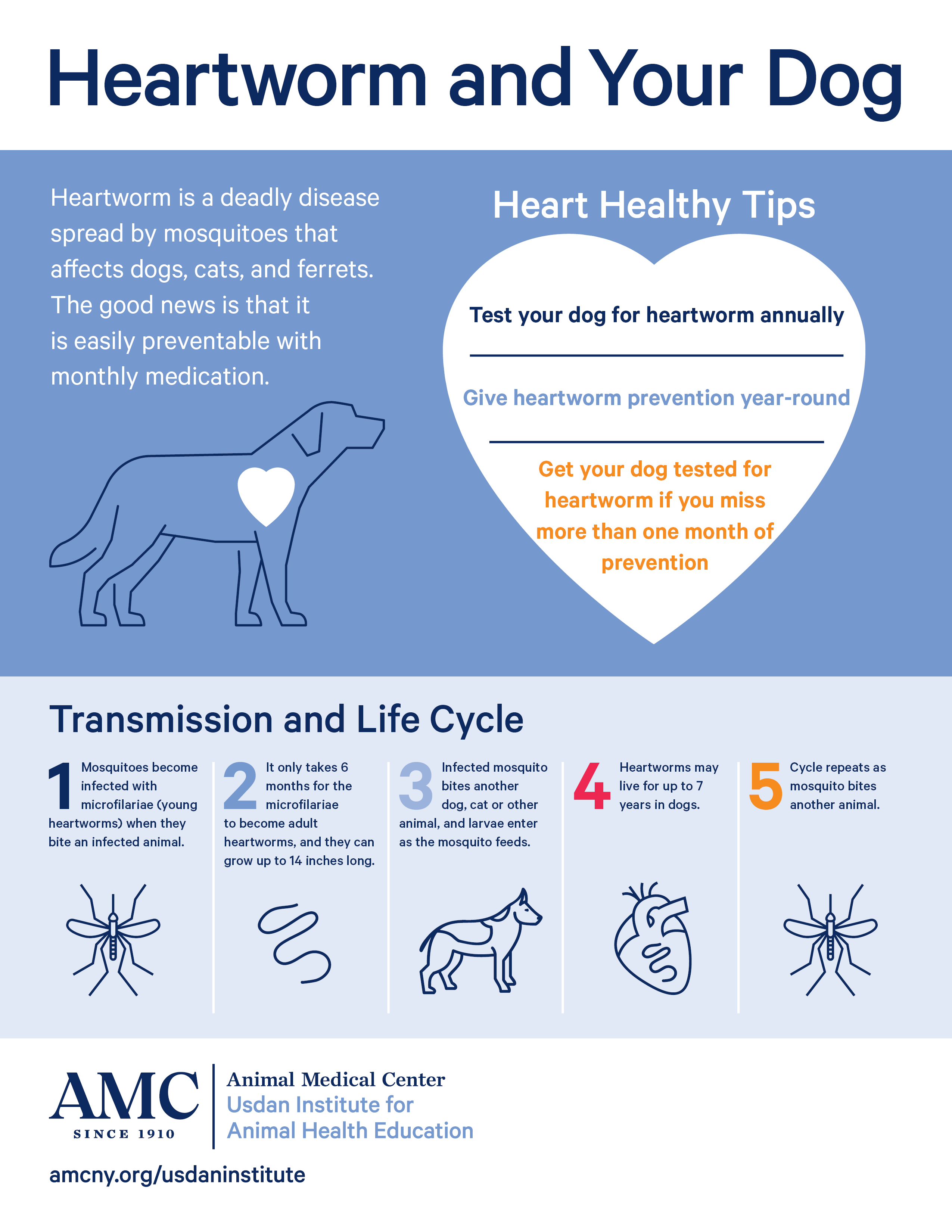April is Heartworm Awareness Month

April is Heartworm Awareness Month
Veterinarian’s offices are humming with energy this time of year. Kitten season is starting up and many dogs will have their annual physical examination and blood tests. One test that is an annual essential is a heartworm test.
Heartworm basics
If left untreated, heartworms can be a serious and potentially fatal condition in dogs. However, the name heartworm is a misnomer. Adult heartworms live in the blood vessels of the lungs. Only in severe cases do the adult worms spill over into the heart and its associated blood vessels.
Dogs contract heartworms when they’re bitten by a mosquito carrying juvenile heartworms. As the worms mature in the dog, they migrate to the blood vessels of the lungs. As mature heartworms reproduce, their offspring, known as microfilaria, circulate throughout the body via the circulatory system. If a dog with microfilaria is bitten by a mosquito, the life cycle starts again.
Heartworm testing
The most common heartworm test uses a small blood sample from your dog. The test identifies a substance produced by the adult female heartworm. Since the test identifies only adult heartworms, there’s a lag time between the bite of the infected mosquito and when your dog will test positive for heartworm disease, approximately 5-6 months. So here in the Northeastern United States, we commonly test dogs for heartworms in the spring to identify any infections acquired during the prior summer. Heartworms have been diagnosed in all 50 states and the Companion Animal Parasite Council recommends annual testing for all dogs.
Heartworm prevention
If your dog’s annual heartworm test is negative, your veterinarian will prescribe a monthly heartworm preventative. This class of medication kills the maturing heartworms before they reach the lungs. These drugs are effective at killing heartworms, but only if you give them on schedule. Check the website of your dog’s heartworm medication because many of these products have an app or an online reminder system to encourage compliance.
Heartworm infection
The veterinarians at the Animal Medical Center diagnosed two cases of heartworms last week. On the surface this seems odd, but both dogs were rescues transported to New York City from southern states. When you move animals, you move their infectious disease as well. Treatment of canine heartworm disease is tricky because the dying heartworms set off serious inflammation in the lungs and predispose dogs to blood clots. Dogs infected with many heartworms experience difficulty breathing, heart failure and obstruction of blood flow when blood vessels become clogged with 6-12 inch long worms. That’s why heartworm preventatives are so important: it helps everyone—dogs, owners, and veterinarians—avoid this complicated medical scenario.
Heartworm tips
If you travel with your dog to areas of the country where heartworms commonly occur, make sure your dog is taking monthly medications on schedule. Many northern dog owners become lax about preventatives in the winter.
Cats and ferrets can get heartworm disease too, but it’s much less common than dogs. Check with your veterinarian about heartworm preventative in these species.
































